Property market sees sign of sanity returning
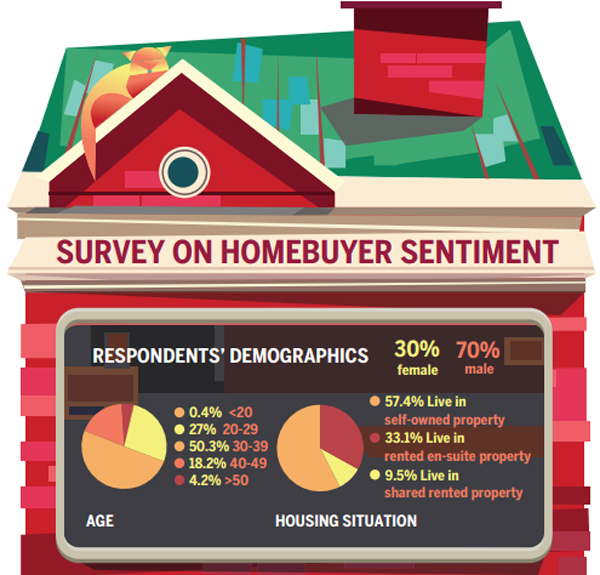
Measures this year across China to rein in both speculative investments in the property sector and skyrocketing home prices appear to be "effective".
For instance, the average sale price in Shanghai's high-end segments posted only a 0.3 percent quarter-on-quarter growth in the first quarter of this year, while in the fourth quarter of 2016, growth was 1 percent.
In Beijing, tight supply of new residential properties and restrictions on purchases caused a nearly 32 percent quarter-on-quarter contraction in sales volumes of newly built residential properties, according to data of anjuke.com.
In the first quarter, Shanghai's tighter policy stance, together with limited new supply and seasonal effects, has contracted sales by 33 percent quarter-on-quarter in the mass market, and 28 percent in the high-end segment, according to JLL East China research.
Growth of average sales price of residential properties in the urban area of Shanghai has also slowed down to 60,100 yuan per square meter now from 59,300 yuan per sq m in January, according to anjuke.com.
The desired impact of restrictions has been seen even at the homebuyer level, not just among developers and realty agencies, analysts said.
For instance, Chen Tongjiang, 57, a homebuyer from Shanghai, may drop his plan to buy an apartment in Hainan province. For, the southeast island, known for its picturesque tourist attractions and year-long balmy weather, last week introduced new investment restrictions.
It banned non-locals such as Chen from buying newly built local properties as their second homes.
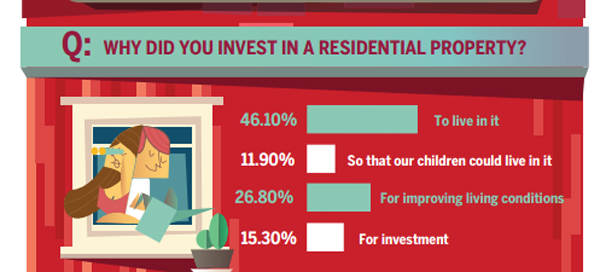
A telecommunications engineer on the verge of retirement, Chen wanted to live in Hainan with his wife and their 27-year-old daughter, who works and lives in Haikou, the provincial capital.
In 2015, Chen had bought on mortgage an apartment for his daughter in Haikou. He wanted to follow it up with another home for his post-retirement life.
"After retirement, it'd be good for us to live near our daughter, separately. But under the new rules, we need to drop this plan. Or, we have to first sell our property in Shanghai and pay the full asking price in Hainan, something my wife is reluctant to do," Chen said.
Hainan is among the latest provinces that are curbing speculative investors and runaway property prices. The crackdown started in March 2016 when Beijing and Shanghai imposed restrictions on home purchases.
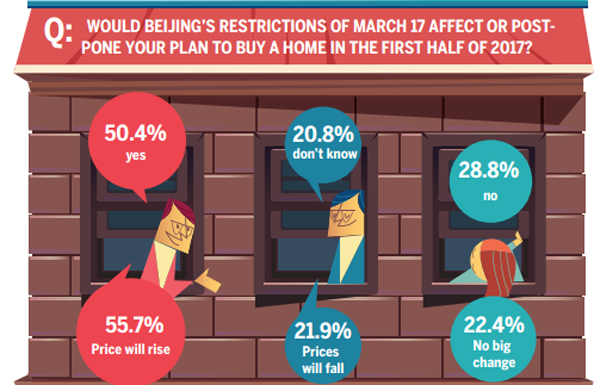
According to Centaline Property, 45 cities across China have introduced more than 140 new rules on home purchase restrictions in the last 12 months.
According to Albert Lau, CEO of Savills China, a property consultancy, more restrictions on speculation may be introduced this year. And more cities, including lower-tier ones with prestigious locations neighboring key cities, are likely to introduce limits on both purchases and home finance.
Homebuyers keen on better or larger accommodation are bearing the brunt of these measures. Owners of homes with an eye on more spacious units or houses in desirable or convenient locations have realized such dwellings are now defined as "second home" in many cities.
That means higher down payments, sometimes up to 70 percent of the property price, in several cities, said Lau.
"Higher down payment requirement is one of the most powerful tools to tackle an errant or distorted market. It's more powerful than limits on homebuyers' qualifications. Residential properties are expensive commodities, and many buyers need home finance. If limits on financing are tightened, many buyers would be pushed out of the market," he said.
Consequent to the latest curbs, lower-tier cities located near top-tier cities and easily accessible through railways or highways, are likely to see a rise in demand for homes. For, homebuyers from main cities are expected to divert their investments to lower-tier cites.
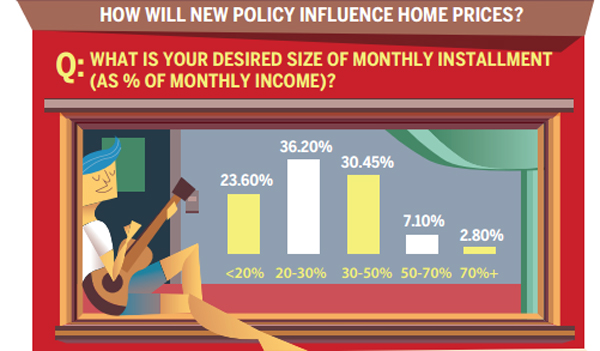
To preempt overheating from such spillover demand, some lower-tier cities have already introduced their own measures to limit home purchases, according to Lau.
"In a sense, better lower-tier cities will absorb investor demand, helping reduce their own inventories. But each lower-tier city varies from another, in terms of location and other factors. For lower-tier cities with tardy economic growth and fewer job opportunities, the pressure to reduce inventories will likely continue," he said.
To be sure, policymakers are in no mood to assume things are back to normal yet. If anything, they appear to be intent on preempting any adverse spillover effects in lower-tier cities as well as preventing speculators from shifting to properties in interior regions or property types not subject to purchase restrictions.
Some lower-tier cities close to key cities, such as Jiangsu province's Suzhou, which is just a one-hour drive from Shanghai, and Guangdong province's Foshan, not far away Guangzhou and Shenzhen, have imposed stricter home purchase rules, particularly against non-local buyers of second and third homes.
Both Beijing and Shanghai have strengthened scrutiny of transactions over commercial-title apartments, preventing speculation "spillover" to quasi-residential properties.
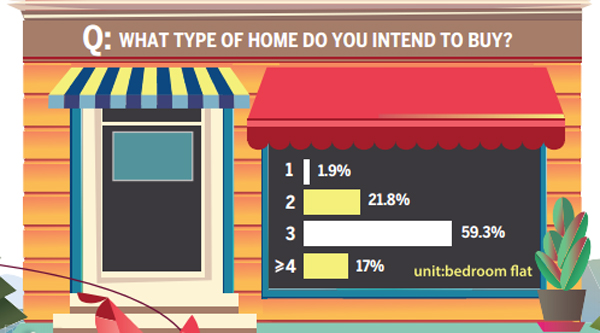
Policymakers are not only raising requirements for homebuyers' qualifications and down payment to curb speculators but urging localities to increase supplies of land for development of residential projects.
On April 6, the Ministry of Housing and Urban Rural Development and the Ministry of Land and Resources jointly released a circular urging cities with limited land supplies for residential properties to increase land supplies for housing projects.
The circular said those cities with inventories that sell fast or would be absorbed by the market in less than 12 months should increase land supply for housing projects.























